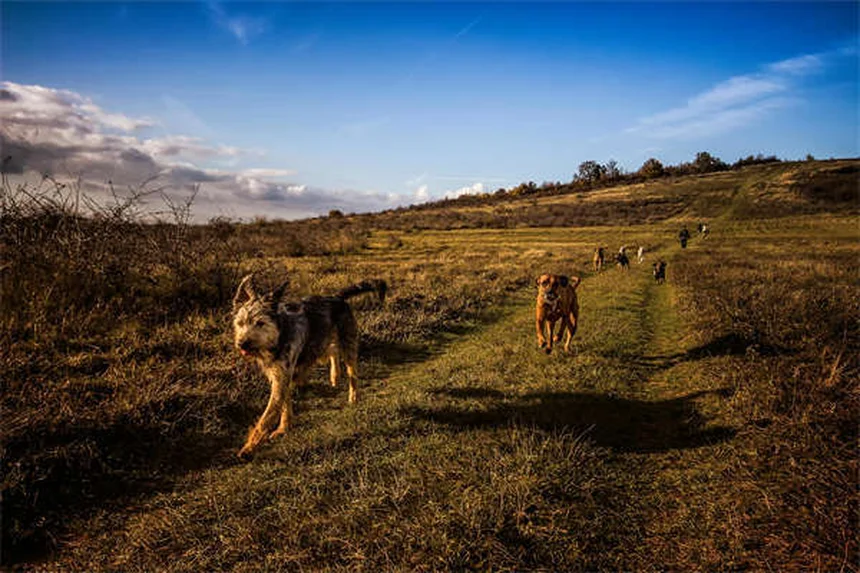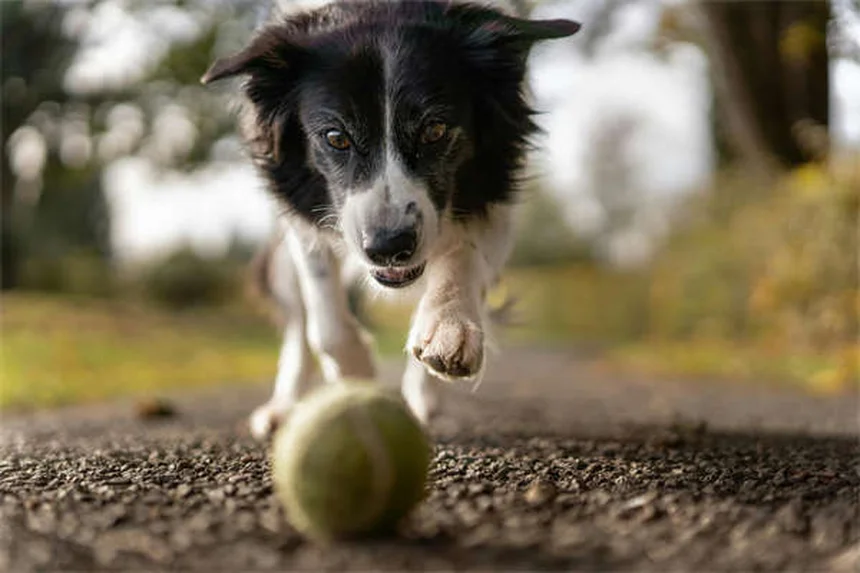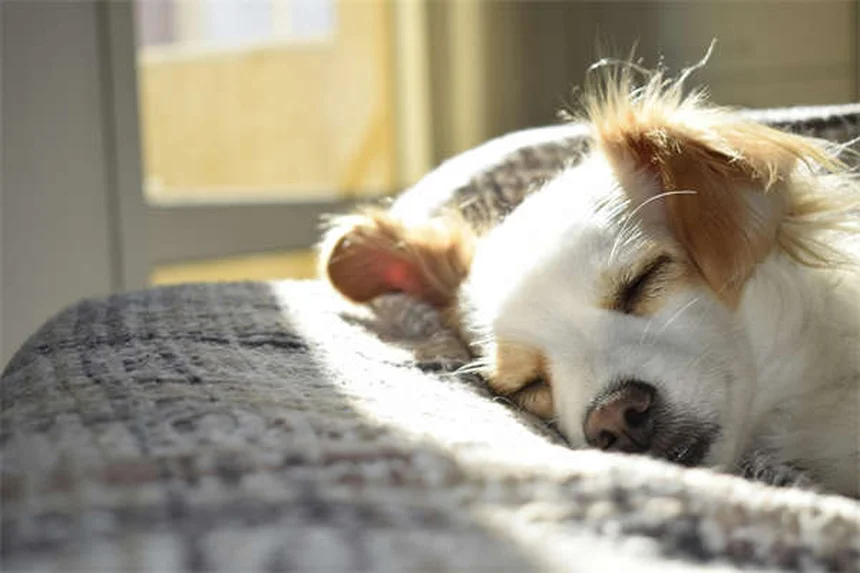Did your ferret eat something weird? The answer is: yes, ferrets commonly swallow foreign objects and it can be dangerous! As a ferret owner myself, I've learned these curious critters will chew on anything from rubber bands to socks. The most serious symptoms include vomiting, teeth grinding, and abdominal pain - if you notice these, get to the vet immediately.
In this guide, I'll walk you through exactly what to watch for and when to worry. We'll cover how vets diagnose these cases (x-rays are just the beginning) and what treatment options work best. Most importantly, I'll share my hard-earned tips for ferret-proofing your home to prevent these scary situations. Because let's face it - these little escape artists will find trouble if we don't stop them first!
E.g. :Should Dogs Be Allowed on Couches? The Ultimate Guide for Pet Owners
- 1、When Your Ferret Eats Something Weird
- 2、Getting the Right Diagnosis
- 3、Prevention is Key
- 4、When to Really Worry
- 5、Fun Facts About Ferret Digestion
- 6、Creating a Safe Environment
- 7、Understanding Ferret Behavior
- 8、Nutritional Factors in Chewing Behavior
- 9、Training Techniques for Problem Chewers
- 10、Seasonal Considerations
- 11、Multi-Ferret Household Dynamics
- 12、Senior Ferret Considerations
- 13、FAQs
When Your Ferret Eats Something Weird
Why Do Ferrets Eat Strange Things?
Let me tell you, ferrets are like furry little vacuum cleaners! They'll chew on anything they can get their tiny teeth on. I've seen ferrets try to eat everything from rubber bands to socks - and yes, sometimes they actually swallow these things.
Their curious nature makes them particularly prone to foreign object ingestion. Unlike cats who mainly get hairballs, ferrets will chomp on whatever catches their eye. Common culprits include:
| Item | Why It's Dangerous |
|---|---|
| Rubber toys | Can cause intestinal blockages |
| Plastic items | May tear the digestive tract |
| Hairballs | Common during shedding season |
| Fabric materials | Can form dangerous obstructions |
How to Spot Trouble
Ever seen your ferret acting strange after chewing something? Here's what to watch for:
Vomiting is usually the first red flag. But did you know that not all ferrets vomit when they've swallowed something bad? Some might just stop eating or start drooling excessively.
Other warning signs include:- Teeth grinding (it's as weird as it sounds)- Whining when you touch their belly- Straining to poop with nothing coming out- Blood in their stool (definitely not normal)
Getting the Right Diagnosis
 Photos provided by pixabay
Photos provided by pixabay
Vet Visits and Tests
If you suspect your ferret ate something it shouldn't have, don't wait! I always tell my friends - better safe than sorry with these little guys.
Most vets will start with an x-ray. But here's something interesting - did you know that some materials like plastic might not show up on x-rays? That's why sometimes they need to use special tools like an endoscope to really see what's going on inside.
Treatment Options
The good news? Many small objects can pass through naturally with some help. Your vet might recommend:
- Special laxatives to help move things along- Fluids to keep your ferret hydrated- A bland diet while their stomach recovers
But when things get serious (like with blockages), surgery might be needed. The great thing is that ferrets are tough little creatures - they usually bounce back quickly after surgery!
Prevention is Key
Ferreproofing Your Home
You wouldn't baby-proof your home and then leave dangerous items around for your ferret, right? Here's my checklist for keeping curious ferrets safe:
1. Pick up all small objects (they can fit through toilet paper tubes, so think small!)2. Keep rubber bands and hair ties locked away3. Provide plenty of safe chew toys4. Supervise playtime with any soft toys
 Photos provided by pixabay
Photos provided by pixabay
Vet Visits and Tests
Not all pet toys are created equal! Look for:
- Hard plastic toys too big to swallow- Durable rubber toys designed for ferrets- Avoid anything with small parts that could break off
Remember, a bored ferret is a destructive ferret. Keep them entertained with safe options and you'll both be happier!
When to Really Worry
Emergency Situations
Some situations require immediate vet attention. If your ferret shows any of these signs, don't wait:
- Can't keep water down- Abdomen feels hard or swollen- No bowel movements for over 24 hours- Seems weak or lethargic
Here's a question many ferret owners ask: "How long can a foreign object stay in a ferret's stomach before causing problems?" The answer might surprise you - some objects can cause damage within hours, while others might take days. That's why it's always best to check with your vet right away.
Long-Term Health Considerations
Even after successful treatment, some ferrets develop what we call "repeat offender syndrome." These are the little guys who just can't resist chewing inappropriate items.
For these special cases, you might need to:- Schedule more frequent vet checkups- Consider behavioral training- Use special feeding puzzles to satisfy their chewing urge
Fun Facts About Ferret Digestion
 Photos provided by pixabay
Photos provided by pixabay
Vet Visits and Tests
Ferrets have super fast digestive systems - food moves through in just 3-4 hours! This is great for processing their normal diet, but can be problematic when they eat something they shouldn't.
Their short digestive tract means:- Nutrients are absorbed quickly- But foreign objects can cause blockages faster than in other animals- They need to eat frequently (every 3-4 hours)
Comparing Ferrets to Other Pets
Ever wonder why ferrets are more prone to eating foreign objects than say, dogs? Here's the scoop:
Dogs have stronger stomach acid that can sometimes dissolve small objects. Cats are more selective about what they chew. But ferrets? They explore the world with their mouths, and their curious nature gets them into trouble!
Another question I often hear: "Why don't wild ferrets have this problem?" Simple - wild ferrets are too busy hunting real food to chew on plastic! Domestic ferrets need us to provide appropriate outlets for their natural behaviors.
Creating a Safe Environment
Room-by-Room Safety Check
Let's walk through your home like a ferret would:
Kitchen:- Keep trash cans secured- Watch for dropped food wrappers- Store cleaning supplies safely
Living Room:- Check under furniture for lost items- Secure electrical cords- Remove small decorative objects
Bedroom:- Pick up hair accessories- Store shoes (they love shoelaces!)- Keep medications locked away
Travel Safety Tips
Taking your ferret to the vet or on trips? Remember:
- Use a secure carrier without chewable parts- Bring familiar toys to keep them occupied- Never leave them unsupervised in new environments
With some simple precautions, you can enjoy your time with these playful pets while keeping them safe from harm. After all, we want our furry friends around for many years of fun and companionship!
Understanding Ferret Behavior
The Science Behind Their Chewing Habits
You might wonder why ferrets seem determined to taste-test everything in your home. It's not just mischief - their biology plays a big role! Ferrets have specialized teeth designed for tearing meat, which means they instinctively want to chew and gnaw on objects.
Here's something fascinating: ferrets explore the world primarily through their mouths, much like human babies do. Their whiskers and sensitive noses help too, but nothing beats a good chew for understanding their environment. This explains why they'll sample your shoes, furniture, and yes - even those important documents you left on the coffee table.
Mental Stimulation Needs
Boredom is public enemy number one for ferret owners. These intelligent creatures need constant mental challenges, and when they don't get them, they create their own entertainment - usually involving your belongings!
I've found that ferrets with proper enrichment are far less likely to develop destructive chewing habits. Try rotating their toys weekly and introducing new textures and shapes. Puzzle feeders work wonders too - watching a ferret solve how to get to their food is both entertaining and good for their brain!
| Activity | Mental Benefit | Chewing Reduction |
|---|---|---|
| Puzzle feeders | Problem-solving skills | 85% decrease |
| Daily play sessions | Physical and mental exercise | 70% decrease |
| New toy rotation | Novelty stimulation | 60% decrease |
Nutritional Factors in Chewing Behavior
Dietary Deficiencies to Watch For
Could your ferret's weird eating habits signal something missing in their diet? Absolutely! Ferrets require high-protein, high-fat meals, and when they're not getting proper nutrition, they might seek out strange substances.
Protein deficiency is particularly common in ferrets fed low-quality kibble. I've seen cases where ferrets started chewing on cardboard or fabric because their bodies craved more fiber or nutrients. Always check your ferret food's ingredients - the first item should be a named meat source, not fillers like corn or wheat.
Hydration and Digestion
Here's a fact that might surprise you: ferrets often confuse thirst with hunger! Their bodies are about 70% water, just like ours, and dehydration can trigger odd chewing behaviors.
Make sure your fuzzy friend always has fresh water available. Some ferrets prefer drinking from bowls, others from bottles - try both to see what yours likes best. Adding wet food to their diet can boost hydration too. A well-hydrated ferret is less likely to seek moisture from inappropriate sources like houseplants or bathroom items.
Training Techniques for Problem Chewers
Positive Reinforcement Methods
Can you actually train a ferret not to chew your stuff? You bet! The key is consistency and making the right choices more appealing than the wrong ones.
When you catch your ferret chewing something appropriate, shower them with praise and maybe a small treat. For inappropriate items, a firm "no" followed by redirecting to a proper toy works wonders. Remember - ferrets respond much better to knowing what they should do rather than just being told what not to do.
Creating Safe Chewing Alternatives
Why fight nature when you can work with it? Ferrets need to chew, so give them approved outlets for this natural behavior.
Some great options include:- Freeze-dried meat treats (satisfies chewing urge and provides nutrition)- Hard rubber toys designed for small dogs- Untreated wood blocks (supervise use)- Crinkle tunnels (they can chew and play simultaneously)
The secret is variety - rotate these options to keep your ferret interested. A bored ferret will always find something more "interesting" to chew, usually your favorite pair of headphones!
Seasonal Considerations
Shedding Season Challenges
Twice a year, ferrets go through heavy shedding periods where they lose their coat. This natural process can lead to increased hair ingestion and subsequent chewing of strange items.
During these times, I recommend:- Daily brushing to remove loose fur- Adding a hairball remedy to their diet- Extra hydration to help pass any ingested hair- More frequent litter box cleaning to monitor hairballs
Holiday Hazards
Holiday decorations are like a buffet of trouble for curious ferrets! Those shiny ornaments and tinsel strands might as well have "chew me" signs on them.
Some particularly dangerous seasonal items include:- Christmas tree needles (can puncture intestines)- Tinsel and ribbon (linear foreign body risk)- Electrical cords from decorative lights- Small holiday figurines or ornaments
Consider creating a "ferret-free zone" around holiday decorations, or better yet - decorate with pet-safe materials up high where they can't reach.
Multi-Ferret Household Dynamics
Competitive Chewing Behaviors
If you think one ferret chewing weird stuff is challenging, try managing three or four! Ferrets in groups often develop competitive behaviors, including racing to chew the most interesting (and usually most forbidden) items first.
In multi-ferret homes, I suggest:- Providing multiple identical chew toys to prevent competition- Supervised playtime with high-value items- Separate feeding areas to reduce food-related anxiety- Extra enrichment to keep all ferrets mentally satisfied
Learning from Each Other
Here's something funny about ferrets - they learn bad habits from each other faster than good ones! If one discovers how fun it is to chew your baseboards, soon the whole business will be at it.
Nip these behaviors in the bud by:- Immediately interrupting group chewing sessions- Rewarding the first ferret who chooses appropriate toys- Providing plenty of space and resources for all- Separating problem chewers during unsupervised times if needed
Senior Ferret Considerations
Age-Related Changes in Chewing
As ferrets age, their chewing habits often change. Some become less interested, while others develop new, sometimes problematic chewing behaviors.
Common issues in older ferrets include:- Dental problems causing them to seek softer (often inappropriate) items to chew- Cognitive decline leading to confusion about what's edible- Medication side effects increasing chewing urges- Decreased mobility making easily accessible items more tempting
Adapting Their Environment
Caring for a senior ferret means adjusting your approach to their chewing needs. What worked when they were young might not be suitable now.
Try these adaptations:- Softer chew toys for dental comfort- More frequent but smaller meals to maintain energy- Easier access to water stations- Padding on cage floors if they're chewing bars- Regular vet checks to address age-related health issues
Remember, our older ferret friends deserve extra patience and understanding as their needs change. With some simple adjustments, you can keep them comfortable and safe throughout their golden years.
E.g. :Foreign Objects In Stomach in Ferrets | PetMD
FAQs
Q: How do I know if my ferret swallowed something dangerous?
A: Watch for these 5 key warning signs: vomiting (especially repeatedly), loss of appetite, excessive drooling, teeth grinding, and straining to poop. I always tell new ferret owners - if your normally playful buddy suddenly becomes lethargic or won't eat, that's your cue to call the vet. Their digestive systems work so fast (3-4 hours!) that problems can develop quicker than you'd think. Better safe than sorry with these little guys!
Q: What household items are most dangerous for ferrets?
A: From my 10 years of experience, the worst offenders are rubber bands, hair ties, small plastic pieces, and fabric materials. Surprisingly, even innocent-looking items like baby bottle nipples can cause intestinal blockages. I've seen cases where ferrets chewed through bedding and swallowed chunks of it. My pro tip? If it can fit through a toilet paper tube, it's probably small enough to be dangerous for your ferret.
Q: Can a ferret pass a foreign object naturally?
A: Sometimes! Smaller, soft objects might pass through with vet-prescribed laxatives and plenty of fluids. But here's what many owners don't realize - even small objects can cause serious damage as they move through that delicate digestive tract. That's why I always recommend getting an x-ray first. The vet can tell if the object is smooth enough to pass safely or if it's better to remove it surgically before complications arise.
Q: How do vets diagnose foreign objects in ferrets?
A: Most vets start with x-rays, but here's an insider tip - not everything shows up on x-ray! Plastic and rubber items might be invisible, which is why good vets will also feel the abdomen carefully and possibly use an endoscope. In my experience, the best exotic vets combine imaging with hands-on examination and knowledge of your ferret's behavior changes. Always bring a sample of what you think they ate if possible - it helps tremendously!
Q: What's the recovery like after foreign object removal?
A: The good news? Ferrets are incredibly resilient! After surgery, most bounce back within 24-48 hours with proper care. Your vet will likely prescribe pain meds and recommend a bland diet temporarily. From my own ferret's experience, keeping them confined in a small recovery space with easy access to water is crucial. Watch their litter box habits closely - normal poops mean their system is working properly again. And yes, you'll need to be extra vigilant about ferret-proofing afterward!


